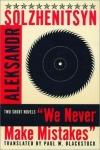
Solzhenitsyn's first book, this economical, relentless novel is one of the most forceful artistic indictments of political oppression in the Stalin-era Soviet Union. The simply told story of a typical, grueling day of the titular character's life in a labor camp in Siberia, is a modern classic of Russian literature …

Cancer Ward examines the relationship of a group of people in the cancer ward of a provincial Soviet hospital in 1955, two years after Stalin's death. We see them under normal circumstances, and also reexamined at the eleventh hour of illness. Together they represent a remarkable cross-section of contemporary Russian …
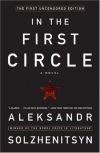
Set in Moscow during a three-day period in December 1949, The First Circle is the story of the prisoner Gleb Nerzhin, a brilliant mathematician. At the age of thirty-one, Nerzhin has survived the war years on the German front and the postwar years in a succession of Russian prisons and labor camps. His story is …
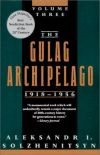
The Gulag Archipelago is a book by Aleksandr Solzhenitsyn about the Soviet forced labour camp system. The three-volume book is a narrative relying on eyewitness testimony and primary research material, as well as the author's own experiences as a prisoner in a gulag labor camp. Written between 1958 and 1968, it was …

August 1914 is a novel by Russian novelist Aleksandr Solzhenitsyn about Imperial Russia's defeat at the Battle of Tannenberg in East Prussia. The novel was completed in 1970, first published in 1971, and an English translation was first published in 1972. The novel is an unusual blend of fiction narrative and …

The Gulag Archipelago is a book by Aleksandr Solzhenitsyn about the Soviet forced labour camp system. The three-volume book is a narrative relying on eyewitness testimony and primary research material, as well as the author's own experiences as a prisoner in a gulag labor camp. Written between 1958 and 1968, it was …
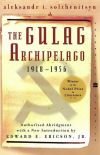
Solzhenitsyn's gripping epic masterpiece, the searing record of four decades of Soviet terror and oppression, in one abridged volume, authorized by the author On of the true and indispensable classics of twentieth-century literature.
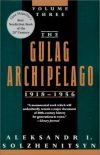
'[The Gulag Archipelago] helped to bring down an empire. Its importance can hardly be exaggerated' Doris Lessing, Sunday Telegraph WITH A NEW FOREWORD BY JORDAN B. PETERSON A vast canvas of camps, prisons, transit centres and secret police, of informers and spies and interrogators but also of everyday heroism, The …

 English
English Español
Español Deutsch
Deutsch

